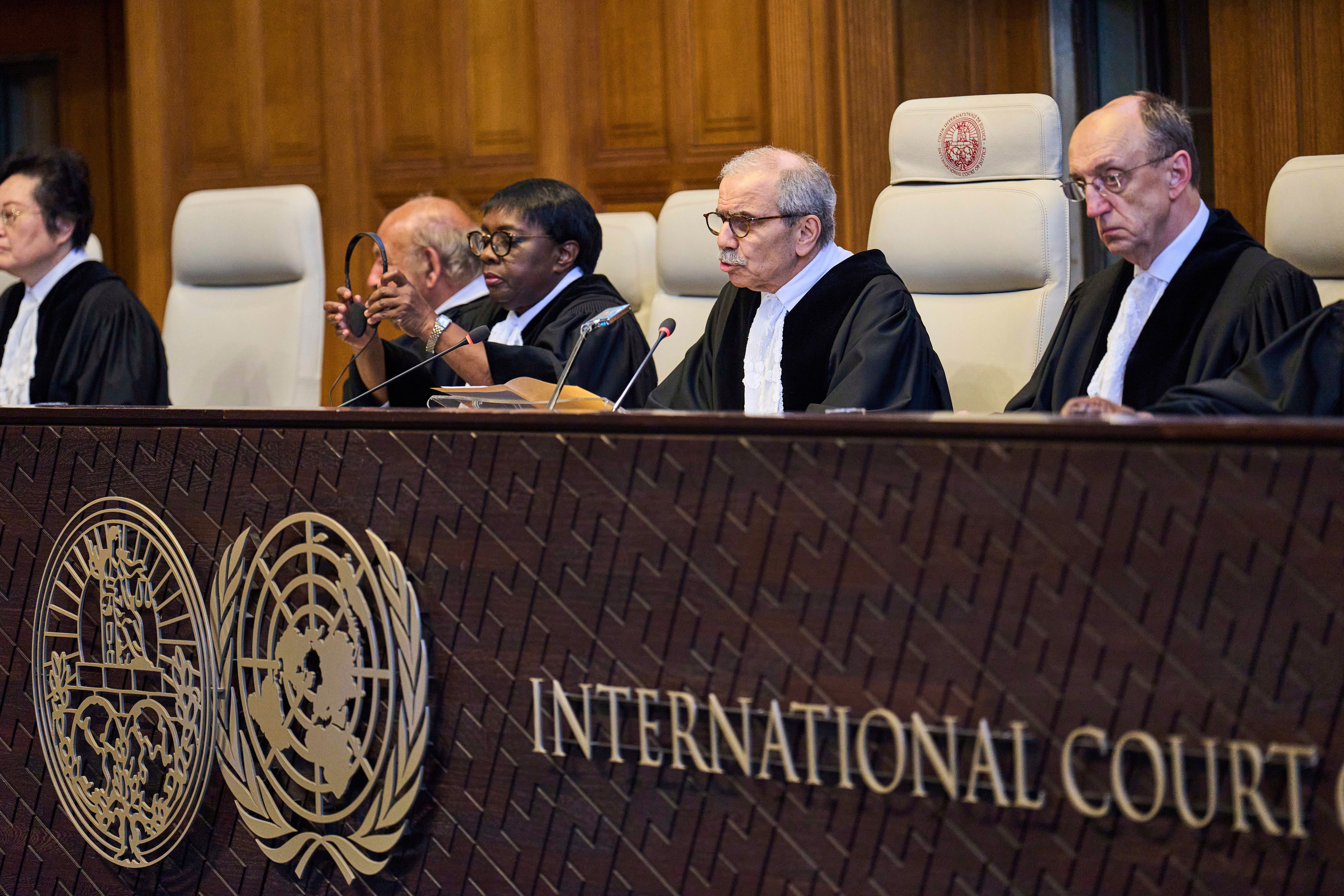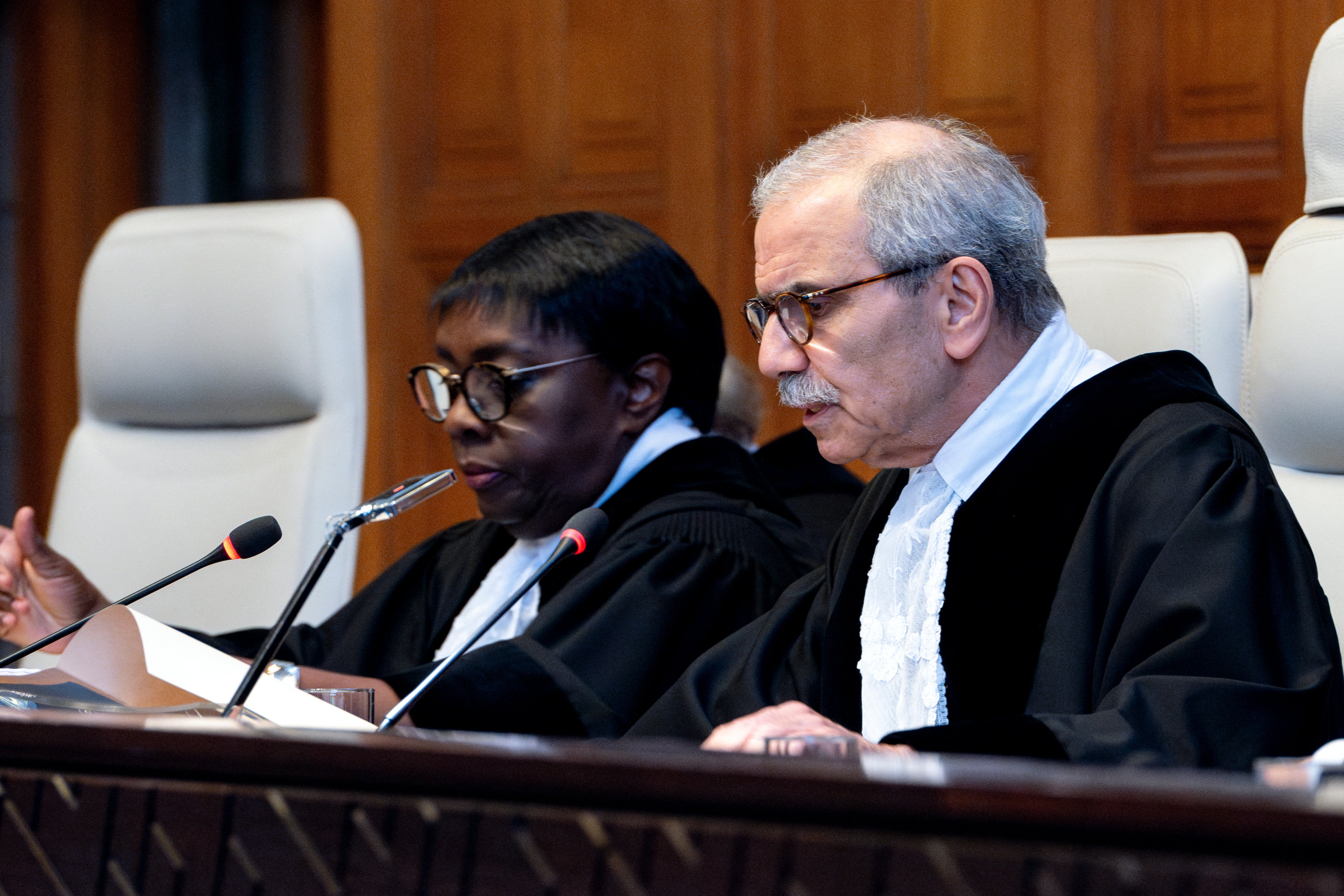ICJ says Israel’s occupation of Palestinian territories is illegal
ICJ judges say Israeli settlements in the West Bank and East Jerusalem are ‘in violation of international law’

Your support helps us to tell the story
From reproductive rights to climate change to Big Tech, The Independent is on the ground when the story is developing. Whether it's investigating the financials of Elon Musk's pro-Trump PAC or producing our latest documentary, 'The A Word', which shines a light on the American women fighting for reproductive rights, we know how important it is to parse out the facts from the messaging.
At such a critical moment in US history, we need reporters on the ground. Your donation allows us to keep sending journalists to speak to both sides of the story.
The Independent is trusted by Americans across the entire political spectrum. And unlike many other quality news outlets, we choose not to lock Americans out of our reporting and analysis with paywalls. We believe quality journalism should be available to everyone, paid for by those who can afford it.
Your support makes all the difference.The United Nations’ highest court said on Friday that Israel’s occupation of Palestinian territories and settlements there are illegal and should be withdrawn as soon as possible, in its strongest findings to date on the Israel-Palestinian conflict.
The advisory opinion by judges at the International Court of Justice (ICJ), known as the World Court, was not binding but carries weight under international law and may weaken support for Israel.
“Israeli settlements in the West Bank and East Jerusalem, and the regime associated with them, have been established and are being maintained in violation of international law,” President Nawaf Salam said, reading the findings of a 15-judge panel.
The court said Israel’s obligations include paying restitution for harm and “the evacuation of all settlers from existing settlements”.

Israel’s foreign ministry rejected the opinion as “fundamentally wrong” and one sided, and repeated its stance that a political settlement in the region can only be reached by negotiations.
“The Jewish nation cannot be an occupier in its own land,” Israeli prime minister Benjamin Netanyahu’s office said in a statement.
The opinion also angered West Bank settlers as well as politicians such as finance minister Bezalel Smotrich, whose nationalist religious party is close to the settler movement and who himself lives in a West Bank settlement.
“The answer to The Hague - Sovereignty now” he said in a post on the social media platform X, in an apparent appeal to formally annex the West Bank.
Israel Gantz, head of the Binyamin Regional Council, one of the largest settler councils, said the ICJ opinion was “contrary to the Bible, morality and international law”.
The ICJ opinion also found that the UN Security Council, the General Assembly and all states have an obligation neither to recognise the occupation as legal nor to “render aid or assistance” toward maintaining Israel’s presence in the occupied territories.
The United States is Israel’s biggest military ally and supporter.
The Palestinian Foreign Ministry called the opinion “historic” and urged states to adhere to it.

“No aid. No assistance. No complicity. No money, no arms, no trade...no actions of any kind to support Israel’s illegal occupation,” Palestinian envoy Riyad al-Maliki said outside the court in The Hague.
The case stems from a 2022 request for a legal opinion from the UN General Assembly, predating the war in Gaza that began in October.
Israel captured the West Bank, Gaza Strip and East Jerusalem - areas of historic Palestine which the Palestinians want for a state - in the 1967 Middle East war and has since built settlements in the West Bank and steadily expanded them.
Israeli leaders argue the territories are not occupied in legal terms because they are on disputed lands, but the United Nations and most of the international community regard them as occupied territory.

In February, more than 50 states presented their views before the court, with Palestinian representatives asking the court to find that Israel must withdraw from all the occupied areas and dismantle illegal settlements.
Israel did not participate in the oral hearings but filed a written statement telling the court that issuing an advisory opinion would be “harmful” to attempts to resolve the Israeli-Palestinian conflict.
The majority of states participating asked the court to find the occupation illegal, while a handful, including Canada and Britain, argued it should refuse to give an advisory opinion.
The United States had asked the court not to order the unconditional withdrawal of Israeli forces from the Palestinian territories.
The US position was that the court should issue no decision that could hurt negotiations toward a two-state solution on a “land for peace” principle.
In 2004 the ICJ gave an advisory ruling that an Israeli separation barrier around most of the West Bank was illegal and Israeli settlements were established in breach of international law. Israel dismissed that ruling.
Join our commenting forum
Join thought-provoking conversations, follow other Independent readers and see their replies
Comments